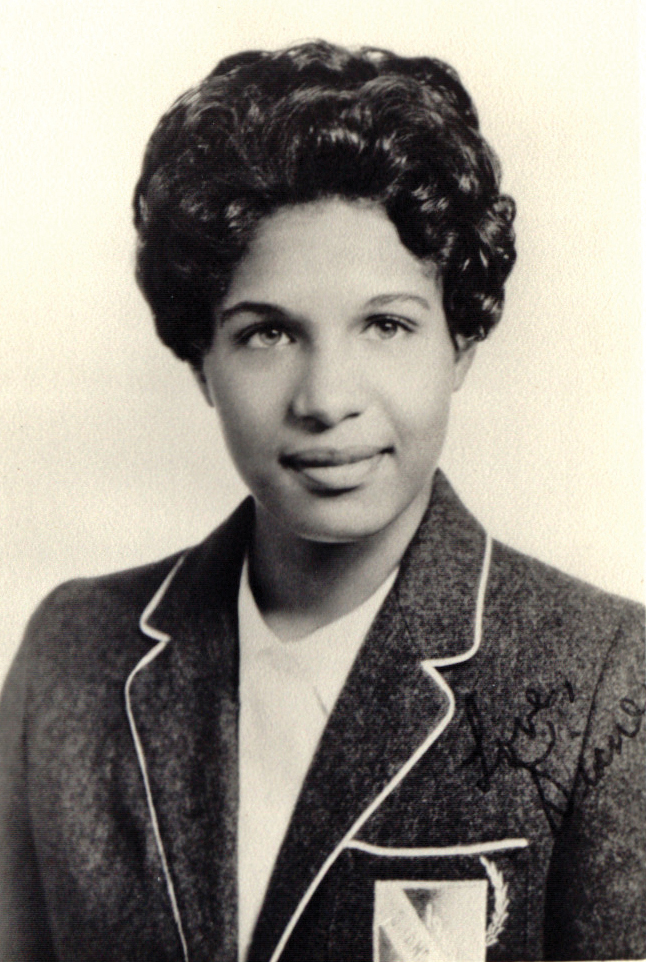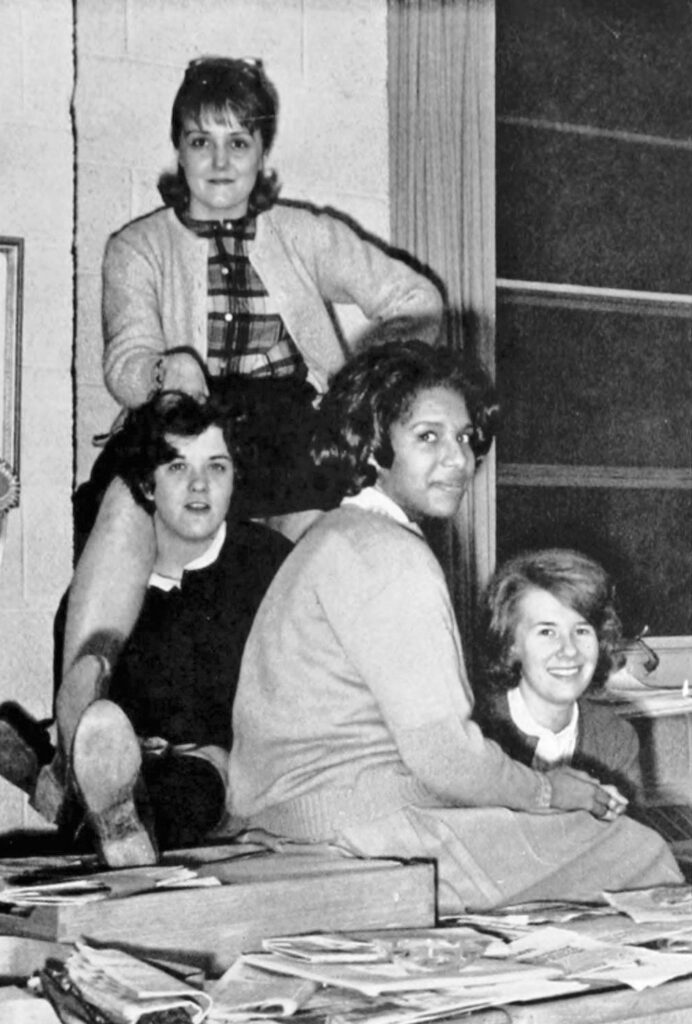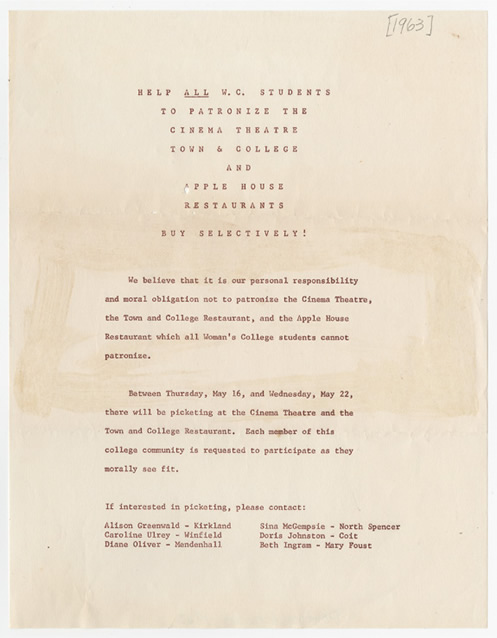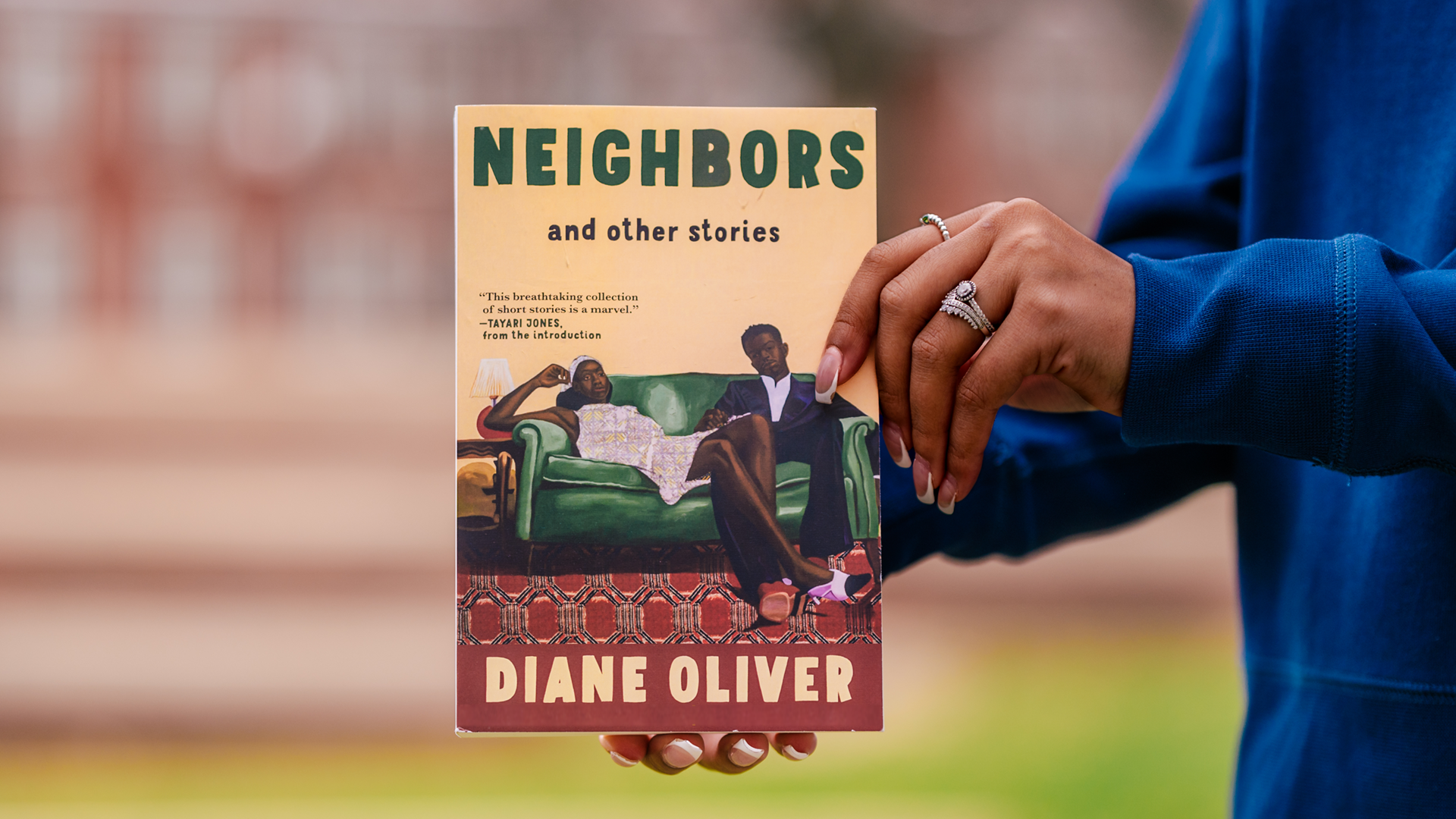Only four stories were published in her lifetime. She died nearly six decades ago, two years after graduation from UNC Greensboro. But alumna Diane Oliver ’64 is now getting the acclaim few writers achieve.
The first collection of her short stories, “Neighbors and Other Stories,” has been published this month by the literary press Grove Atlantic. This comes on the heels of glowing retrospectives of her life and works last year in Literary Hub and the Bitter Southerner. Podcasts have focused on her, and news of publication rights for the new book emerged a year ago. A “Bookseller” news report at that time quoted Editorial Director Donna Coonan saying, “Just rarely, as a classics editor, you read something that makes the hairs on the back of your neck stand up, and the prescience of the words you’re reading gives you an otherworldly shock.”
That report also quoted Diane’s younger sister, Cheryl Oliver, saying, “Today I am overwhelmed with joy and gratitude to be alive to witness the fulfilment of her dreams in having her collected stories published.”
In recent weeks, a Paris Review post and a Guardian article have weighed in. In recent days, the Washington Post and The New York Times have, as well. And on Feb. 21, a literary panel event in New York City will focus solely on her life and stories.
“The publication of Diane Oliver’s ‘Neighbors and Other Stories’ is an important event in African American and American letters, a restoration of an extraordinarily gifted young writer’s work to our ongoing literary conversation,” says Jamel Brinkley (on the Grove Atlantic site), prize-winning author and a professor at the University of Iowa Writers’ Workshop.
In 1960, when Diane Oliver enrolled at Woman’s College (now UNCG), she was one of fewer than two dozen Black students on campus. The first two Black students had enrolled in 1956.
An English major from Charlotte, Oliver became feature editor and managing editor of The Carolinian student newspaper and was on the staff of Coraddi, the campus literary magazine. She also served on the student legislature. As she graduated from UNCG, she received a scholarship for graduate school at the prestigious University of Iowa Writers’ Workshop. Tragically, she died before graduating from the program.
While at UNCG, she helped lead the 1963 student-organized effort to fully integrate Tate Street, the strip of businesses beside campus. Three businesses – a cinema and two eateries – had refused to desegregate. Woman’s College (UNCG) students, with the support of the student government, boycotted the three businesses and a few dozen students picketed. A flyer preserved in UNCG Archives lists Oliver as one of the six contacts (three Black students, three white students) for those willing to picket. When she earned a Mademoiselle magazine internship slot at the end of her senior year, it was on the basis, Michael A. Gonzales reports in The Bitter Southerner, of an essay on that student-led desegregation effort at “The Corner” on Tate Street.



“She was very involved in the think-tank discussions in developing strategies of the movement,” says UNCG alumna Sina McGimpsey Reid ‘65, who was also one of the leaders of that Tate Street effort. Reid and Oliver were both Black students; Oliver, who was a year ahead of Reid, made an impression on her. “She was a brilliant writer. She was an articulate and beautiful young woman – a model for me,” Reid says.
“With beautiful, hazel brown eyes and of impressive height,” as Reid describes her, “she was pleasant, approachable, and collaborative. My recollection is that Diane could see both sides of a situation and could easily navigate movement of a group discussion to consensus.”
Reid cites an example of this, at a small meeting of Woman’s College activists in a dorm room on campus. “My recollection is that the purpose of the meeting was to access the various strategies presently under consideration to achieve access to all the facilities at The Corner. It was a small group but the views expressed were diverse and reflected the knowledge and experiences of those in attendance. By this time, the upper-class Black students had developed astute assessments of not only the campus environment, but also its leadership and where there might be some potential support for our movement,” she says.
“Diane seemed to be just one of those in attendance that could most move us to consensus – not only because she was a cogent thinker and effective communicator, but also because she was a known and active participant in various student groups and clubs. She had accomplished the art of connection and was trusted.”
Her freshman year, Oliver had lived on a hallway in Shaw Residence Hall reserved for Black students. Two white students, seeing there were unused rooms on that hall, asked to move there. Debbie Rubin became friends with Oliver. “She was smart, pretty, and understated in everything she did,” Rubin recalls.
Rubin invited her friend to her home in Columbia, S.C., after their sophomore year for a few days. (Mind you, this was the heart of the South in the early 1960s.) She arrived on a Greyhound bus. “I took Diane to a friend’s house – no problem.” Although invited, Debbie declined a visit in Charlotte, fearing outside pressure on the Oliver family, she explains. Rubin transferred for her final two years. They kept in touch through occasional letters.
She remembers her friend’s typical attire on campus: “white shirt with rounded collar, and a sweater.” When pressed for details on her personality, Rubin recalls how clearly she expressed herself. “She was not casual. (Perhaps surprisingly) for a writer, she did not speak metaphorically. She made a strong impression on me – very centered, a calm center.”
And there was her particular sense of humor. “Diane had a wry sense of humor, more subtle than broad. As an example, I remember Diane writing me that Mademoiselle magazine set her up with an Indian young man at a dinner party because (as she wrote), ‘They didn’t know what to do with me.’”
A May 16, 1964, article in The Carolinian laid out her post-Commencement summer which would include that guest editorial internship in Manhattan at Mademoiselle. She was one of 20 to be selected nationwide, and it would take her also to Oxford and Stratford in England. Additionally, she was going to Europe (she hoped for France, as she spoke French) that summer as part of the Experiment in International Living, and would live with a family there, she said. In late summer, she’d start her writing program in Iowa.
She told Carolinian interviewer Jo Moore of the moment she learned she’d been inducted into the campus’ honorary society, Golden Chain, two weeks earlier. “At one o’clock in the morning I rushed downstairs to receive what was supposed to be a long distance call, only to find the dim parlor filled with girls and candles. It was a beautiful ceremony – I’m sure I’ll always remember the wonderful honor.”
And she was continuing her writing, she told the interviewer, as she nodded to her typewriter:
“I’m going to see if I can publish this short story,” she grins. “Of course there’s no way of telling what will happen, but I have hopes. It’s the story of a young boy who attends an integrated school. It’s a quiet type of story – I just can’t seem to write any other way.”
Perhaps this was “Neighbors,” first published in 1966 in The Sewanee Review and the opening in the epynomous compilation published this month? Critic/writer Michael A. Gonzales reflects about this compilation: “Closing the book, I was mystified as to why Diane Oliver isn’t better known. Without a doubt, if the brilliant ‘Neighbors’ is any indication, her literary voice should’ve been as inspiring to aspiring writers as Zora Neale Hurston’s or James Baldwin’s.”
She died as a passenger on a motorcycle in spring of 1966. “The irony is that I would not have imagined Diane on the back of a motorcycle,” her friend Sina Reid says. “It was the ride that ended the life of this very bright star. On second thought, I suspect that if this was the means to the next writing assignment, I can imagine her taking that ride.”
She was not quite 23. But her stories have been preserved. And now, they are published. Her literary gifts live on.
The panel discussion “Celebration of Diane Oliver” will be held at The Center for Fiction in Brooklyn, NY, Wednesday, Feb. 21, 7 p.m.. Details and ticket information for the livestream are here.
A feature article on the 1963 boycott/protest is in the Spring 2010 UNCG Magazine, pp. 34-38
By Mike Harris, UNCG Magazine
Book photograph by Sean Norona, University Communications. Archival photographs and flyer courtesy UNCG Archives.
